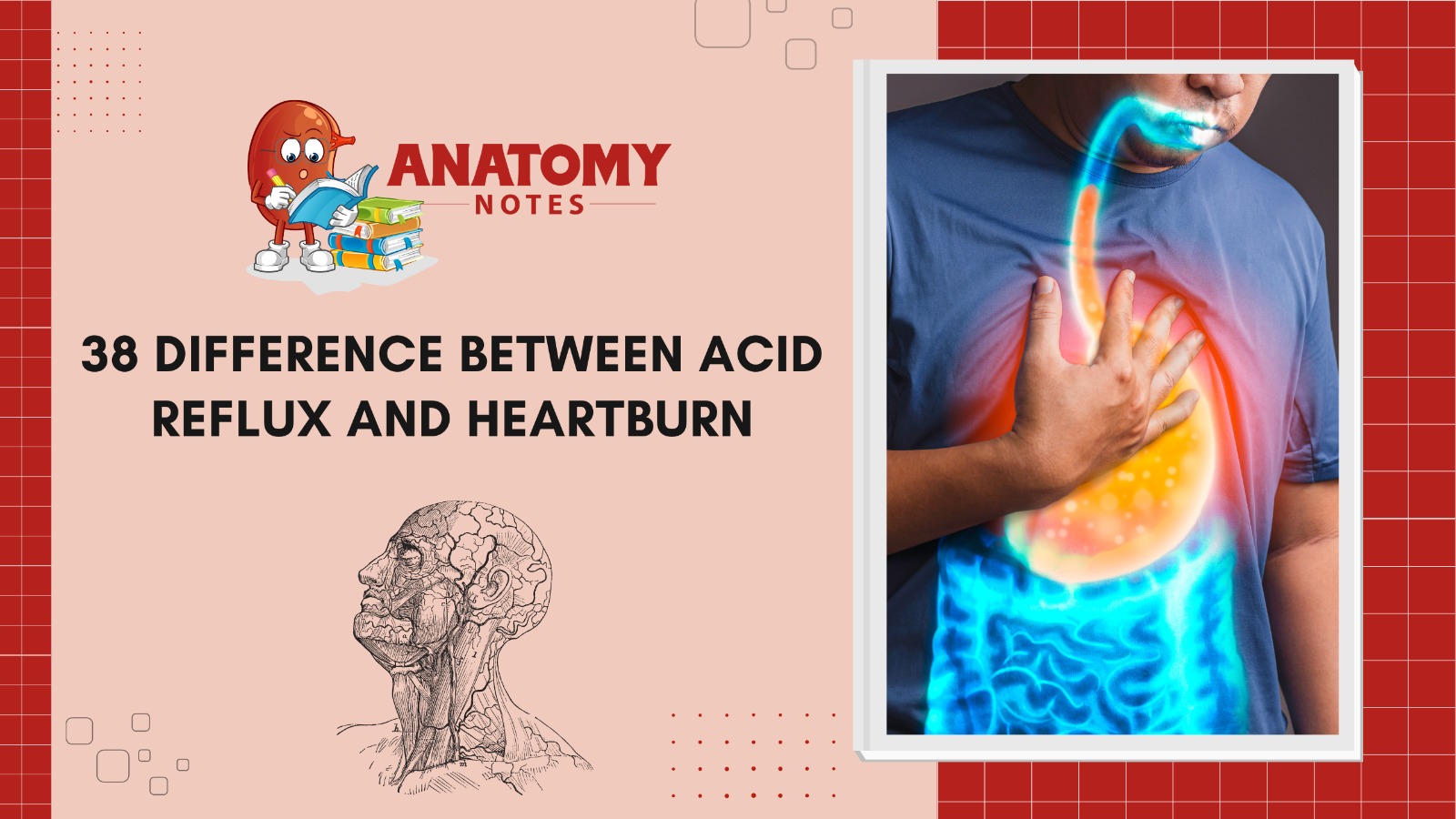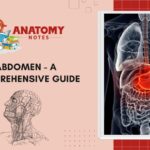These terms are commonly confused with acid reflux and heartburn. They are two types of stomach distress. To monitor and treat these illnesses, you must understand their differences, even though they have similar symptoms. Stomach acid and other digestive secretions reflux into the esophagus, causing acid reflux. The esophagus lacks the stomach’s lining, making it more vulnerable to injury. Heartburn, however, indicates acid reflux. This scorching chest pain typically spreads to the throat and jaw, making it feel like a heart condition. The main cause is acid reflux, which causes heartburn.
A burning chest, a sour taste in the mouth, and stomach contents rising up are common symptoms of acid reflux and heartburn. Acid reflux can also produce persistent cough, hoarseness, and problems swallowing, which may not be as evident as heartburn. Acid reflux and heartburn share causes. A weak lower esophageal sphincter (LES), a muscle ring between the stomach and esophagus, often causes them. Damage to the LES can cause stomach acid to reflux into the esophagus. This is acid reflux, causing heartburn. Being overweight, pregnant, using certain medications, smoking, and eating certain foods might damage the LES.
Certain factors can worsen acid reflux and heartburn. Spicy, citrus, fatty, caffeine, liquor, and carbonated drinks are common culprits. However, each person’s sensitivity is different, therefore some may develop symptoms after consuming particular foods. Management must be done right to work. Endoscopes, pH monitoring, and imaging let doctors distinguish acid reflux from heartburn and assess its severity. Lifestyle adjustments including eating less, decreasing weight, or raising the bedhead are generally recommended first. Over-the-counter antacids and PPIs reduce stomach acid. In severe circumstances, you may need surgery or prescription medicines.
Acid reflux and heartburn are related but distinct. Stomach acid refluxes into the esophagus. Acid reflux causes chest and throat pain called heartburn. Correct evaluation and therapy need to understand these variances. People might also take steps to reduce discomfort and enhance digestive health.
Also Read: Gastrointestinal System – Intro, Functions, Movements & Organs Associated
|
S.No. |
Aspect |
Acid Reflux |
Heartburn |
|
1 |
Definition |
Backward flow of stomach acid into the esophagus |
Burning sensation in the chest and throat |
|
2 |
Common Cause |
Weakening of the lower esophageal sphincter |
Stomach acid entering the esophagus |
|
3 |
Symptom |
One of the symptoms of acid reflux |
|
|
4 |
Frequency |
Can occur frequently or occasionally |
Often occurs after meals, especially large ones |
|
5 |
Nature of Sensation |
Often involves regurgitation or burping |
Characterized by burning discomfort |
|
6 |
Location |
Can affect the esophagus, throat, or mouth |
Primarily felt in the chest and throat |
|
7 |
Triggers |
Certain foods, beverages, lying down |
Lying down, bending over, consuming certain foods |
|
8 |
Chronology |
Precedes heartburn sensation |
Often follows acid reflux |
|
9 |
Duration |
Can be brief or persist for longer periods |
Can last for a few minutes to hours |
|
10 |
Underlying Cause |
Gastroesophageal reflux disease (GERD) |
Acid reflux, consumption of certain foods |
|
11 |
Potential Complications |
Can lead to complications like GERD, esophagitis |
Generally not as severe as GERD |
|
12 |
Symptoms |
May include regurgitation, bloating, belching |
Primarily burning sensation, chest discomfort |
|
13 |
Time of Occurrence |
Can occur at any time, including during sleep |
Often more common after meals and at night |
|
14 |
Esophageal Irritation |
Common, due to acid affecting the lining |
Less prominent than in acid reflux |
|
15 |
Respiratory Symptoms |
Can trigger coughing, wheezing, hoarseness |
Less likely to cause respiratory symptoms |
|
16 |
Sleep Disruption |
Can disrupt sleep due to symptoms |
Nighttime heartburn can disrupt sleep |
|
17 |
Medical Evaluation |
May require medical evaluation for diagnosis |
Often diagnosed based on symptoms |
|
18 |
Diagnostic Methods |
Endoscopy, pH monitoring, barium swallow |
Symptom assessment, response to antacids |
|
19 |
Treatment |
Lifestyle changes, medications, surgery |
Antacids, lifestyle changes, medications |
|
20 |
Effect on Quality of Life |
Can significantly impact quality of life |
Can affect daily activities and sleep |
|
21 |
Dietary Recommendations |
Avoiding trigger foods and large meals |
Avoiding trigger foods, consuming smaller meals |
|
22 |
Severity |
Can range from mild to severe |
Can be mild to moderate |
|
23 |
Gastric Content |
Contains stomach acid |
|
|
24 |
Potential Causes |
Pregnancy, obesity, smoking, hiatal hernia |
Dietary factors, obesity, certain medications |
|
25 |
Lifestyle Factors |
Obesity, smoking, alcohol consumption |
Obesity, smoking, consumption of certain foods |
|
26 |
Impact on Dental Health |
Acid can erode tooth enamel |
Less impact on tooth enamel |
|
27 |
Impact on Voice Quality |
May cause hoarseness or changes in voice |
Not as likely to affect voice quality |
|
28 |
Impact on Eating Habits |
May affect eating patterns and choices |
Can influence food choices and timing |
|
29 |
Connection to Meals |
May occur irrespective of meals |
Often worsens after large or spicy meals |
|
30 |
Chronic Nature |
Can become chronic if not managed |
Can be occasional or chronic |
|
31 |
Medication Usage |
Can require ongoing use of medications |
Over-the-counter antacids for relief |
|
32 |
Impact on Breathing |
Can sometimes trigger or exacerbate asthma |
Generally less impact on breathing |
|
33 |
Diagnostic Imaging |
Imaging tests can show reflux and damage |
Not typically visualized through imaging |
|
34 |
Treatment Approach |
Focuses on managing acid reflux and its causes |
Primarily aims to alleviate heartburn |
|
35 |
Gastroesophageal Reflux Disease |
Can be a symptom or a condition itself |
May lead to gastroesophageal reflux disease |
|
36 |
Gastric Protection |
Focuses on reducing esophageal exposure to acid |
Focuses on relief from the burning sensation |
|
37 |
Medication Usage |
May involve acid-suppressing medications |
Often involves antacids and acid reducers |
|
38 |
Long-Term Management |
Requires continuous management of symptoms |
Generally managed with lifestyle changes |
Also: How the Urinary System Works – Anatomy and Functions
Frequently Asked Questions (FAQS)
Q.1 What is the main difference between acid reflux and heartburn? Acid reflux causes esophageal ?
discomfort by reversing stomach acid. Acid reflux causes heartburn, which causes burning in the chest, throat, and even jaw. The cause of heartburn is acid reflux.
Q.2 What are common acid reflux and heartburn causes?
Acid reflux and heartburn can be caused by certain meals and habits. Spicy, fatty, citrus, caffeine, alcohol, and carbonated drinks are major culprits. Smoking, obesity, and certain drugs weaken the lower esophageal sphincter (LES), allowing stomach acid to seep back into the esophagus.
Q.3 How can I distinguish heartburn from acid reflux?
Heartburn and acid reflux overlap symptoms, but acid reflux may cause coughing, hoarseness, and trouble swallowing. Consider the context of symptoms and consult a doctor to distinguish the two. Diagnostic investigations like endoscopy and pH monitoring can establish cause and severity.
Q.4 Do lifestyle modifications improve these conditions?
Lifestyle changes can help acid reflux and heartburn. Maintaining a healthy weight, avoiding trigger foods, eating smaller meals, and not lying down after eating help. Quitting smoking, elevating the bed, and limiting alcohol and caffeine can all help.
Q.5 When should I seek medical attention for acid reflux and heartburn?
Common heartburn can be treated with over-the-counter antacids. Consult a doctor if you have frequent or severe symptoms. Prolonged symptoms may suggest gastroesophageal reflux disease (GERD), which may require medication or surgery to prevent esophagitis or Barrett’s esophagus.




